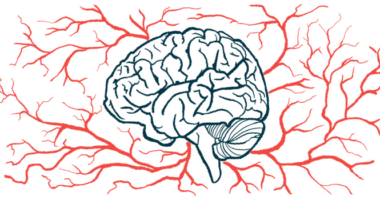Researchers Develop Cheap, More Sensitive Screening Test for Pompe Diagnosis, Study Reports

Researchers have proposed a cheap, simple, and more sensitive screening test to identify Pompe disease and differentiate it from other neuromuscular disorders.
The study, “Vacuolated PAS‐positive lymphocytes as an hallmark of Pompe disease and other myopathies related to impaired autophagy,” was published in the Journal of Cellular Physiology.
Pompe disease is a genetic disease characterized by the buildup of a sugar molecule called glycogen in cellular structures known as lysosomes. This accumulation is caused by a mutation in the GAA gene, which codes for acid alpha-glucosidase, an enzyme needed to break down glycogen into glucose.
Patients with Pompe disease have impairments in different organs and tissues, especially the heart, skeletal, and respiratory muscles, as well as lymphocytes (immune system cells) in peripheral blood. The disease has three types, with diverse severity and age of onset.
Vacuolar myopathy typical of Pompe disease is the most common myopathy caused by impaired autophagy, a degradation process that takes place in lysosomes. Myopathies are neuromuscular disorders defined by muscle weakness due to dysfunction of muscle fibers.
Enzyme replacement therapy (ERT) for Pompe disease increases the levels of the GAA enzyme and reduces the buildup of glycogen in cells. This approach decreases the thickening of heart walls to maintain muscle function and improve patients’ quality of life. Physicians recommend starting ERT as soon as possible, which makes early diagnosis critical.
The new test proposed here spots the presence of lymphocytes containing glycogen in the blood of subjects with suspected neuromuscular disease, as well as GAA activity. The test demonstrated 100% sensitivity and 94% specificity in patients with Pompe disease.
The study, conducted by researchers at the University of Campania “Luigi Vanvitelli” in Naples, Italy, and Temple University in Philadelphia also showed that the presence of vacuolated lymphocytes, as detected with Periodic-Acid Schiff staining (PAS), appears to be characteristic of autophagic myopathies.
Importantly, the new screening test allows researchers to accurately differentiate Pompe disease and autophagic myopathies from other neuromuscular conditions.
The method is minimally invasive, and could be used in high-risk populations, including pregnant women and people with a family history of neuromuscular disorders.
“In conclusion, we showed that quantification of PAS-positive lymphocytes in peripheral blood films should be used as a reliable, cheap and simple, first-level screening method to support the diagnosis of autophagic vacuolar myopathy as Pompe disease,” the researchers wrote.






